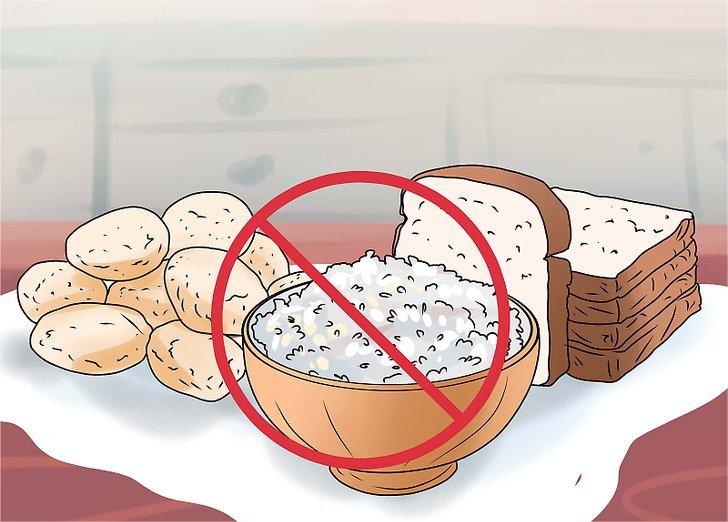With the rejuvenation of various chronic diseases, people are paying more and more attention to their health. Especially obesity, which in the past was considered a symbol of good family conditions, has now become something that makes people worry. After all, many chronic diseases are related to obesity, so many people have embarked on the road to lose weight.
Of course, there are a lot of weight loss through dieting, but most of them end in failure. After all, when dieting, that kind of hunger even sleep can wake up hungry feeling is not everyone can endure. At this time, a variety of meal replacement products are applied and born. But there is no lack of time and are willing to exercise can choose to run or gymnastics or something, as long as there is enough perseverance, will certainly be successful; but for the work of the busier crowd, meal replacement has become a good choice. Today we share with you whether meal replacement can really play a weight loss effect?
First of all, sure answer, meal replacement can play the effect of weight loss, its core principle is also relatively clear, that is: reduce energy intake.
Don’t underestimate these words, they are the foundation of all weight loss solutions.
As a living organism incapable of photosynthesis, our source of all energy is food intake, and our energy expenditure includes daily exercise and, most basically, basal metabolism.
These two then present a dynamic equilibrium relationship, if the dynamic is broken, intake exceeds absorption, then the excess energy will be stored, thus leading to obesity. Conversely, if the intake is lower than the absorption, then the stored energy will be consumed, and the result is to become thin.
So for anyone, the core principle of weight loss is to reduce energy intake and increase energy expenditure so that weight loss can be achieved.
However, it is easier said than done.
It has been said above, dieting to lose weight this simple and rough way, almost every dieting people have tried, but most people failed. Then laugh at themselves as: lack of willpower. There are even people who will revenge diet, the result is not only did not lose weight, but gained weight.
Is it really simply a matter of willpower? The answer is no.
In fact, research has found that our hunger is not only related to the energy we consume, but also to another important neural perception, that is, satiety.
While the word satiety is one that many people have come across, it’s not something that is simply perceived, however, but involves a number of neuromodulatory processes. For example, last year a study was published in the quantitative neurology journal Neuros looking at the mechanisms that signal satiety. They found that our guts have a set of nerves that sense the eating process (Mechano-sensing Neurons)
This sensory process is the mechanical perception of the intake process of the stomach and intestines, and it is closely related to the total amount of food we consume. This is why we often take a long time to eat before we are full. If we fall below a certain time and amount, then there is insufficient neurosensory feedback, which leads to the feeling that we are “not full”.
Interestingly, when the neural genes responsible for satiety were knocked out of the subjects, the fruit flies lost their sense of satiety and continued to eat until their crop (which is roughly equivalent to our stomach) was burst.
As you can see, our diets are actually regulated in a complex way, and simply dieting that is unrealistic because our gut satiety-related nerves will keep reminding us that we are not full and ultimately tempting us to keep eating.
Therefore, why many people through dieting to lose weight is difficult to succeed, because we are fighting against a set of long-term adaptation and nerve-related regulatory mechanisms, that naturally shows a “lack of self-control”, “can not stick”.
Therefore, one of the most important things to keep in mind when trying to lose weight is to achieve satiety. In other words, do not reduce the total volume of food in the gut.
So, is it really hopeless to lose weight? Of course not.
We can maintain the volume of food to maintain satiety, but that doesn’t mean we can’t lower the energy density of our food ah. As long as our food is low enough in calories, then it’s not really a problem if we have a large intake.
Meal replacement is the application of this principle, by maintaining the total intake of volume, but reduce the density of energy intake, so that you can meet the satiety of the premise, to avoid the body’s mechanically sensitive nerves do not get timely feedback and hunger, and finally realized the purpose of reducing the overall intake.
Therefore, a meal replacement that can help you do the above must fulfill the following points:
- Satiety
Our large discussion above is describing this element, that is, weight loss must not reduce the satiety of food, otherwise you can not resist the hunger cravings of the nerves. Therefore, meal replacement must be in the amount of intake to meet the needs of satiety. First of all, the weight of intake, normal adults a day total intake of solid and liquid type of food in the total amount of 1-2kg, so the total amount of meal replacement should not be less than this figure
- Low energy
Once satiety has been satisfied, the next step is to lower the energy density of the meal replacement. Normal adult basal metabolism is about 1500-2000 (kJ/(m2-h)), so the energy density of the intake should be around or below this figure, but not for a long time below this figure. Meal replacements are generally produced using very low calorie foods, and these are often of plant origin, after all, plants themselves are lower calorie foods, and there is also a large amount of fiber that the human body cannot directly metabolize and absorb. It can effectively satisfy satiety and reduce energy density.
- Can not lack of normal nutrients
Although it is important to lose weight, but health is more important, if the weight loss excessively lead to a lack of normal nutrients affect the normal metabolism, and even caused the body’s health problems, it is not worth the loss.
Therefore, meal replacement must not lack of normal nutrients. For example, the typical is vitamin, for the health of the organism has a vital role, such as vitamin C itself plays the role of antioxidant, if the lack of scurvy will cause.
- Tasty and portable
In fact, meeting the above three elements basically fulfills the need for meal replacement. However, there are still some application considerations that can not be missing, that is, the taste should be good, otherwise, if people do not like to eat, how good meal replacement is also in vain. Of course, for the busy modern people, portable is also an important consideration. After all, work has been very busy, where there is time to exercise, if a cup of meal replacement to bring the energy equivalent of a meal after jogging for an hour of consumption. That meal replacement is definitely a good choice. To know, an hour of jogging is not so easy to adhere to.
As I have been running in weight loss, the above four points are essential to consider when choosing a meal replacement. It is recommended that you choose something more established and reliable in order to have peace of mind with your meal replacement.
In short, weight loss or need to take a step-by-step approach, those all of a sudden storm thin way are unhealthy, unscientific, undesirable, must find their most suitable method, consistent. If you are also using meal replacement to lose weight, there should also be a stage of adaptation, do not rush!




